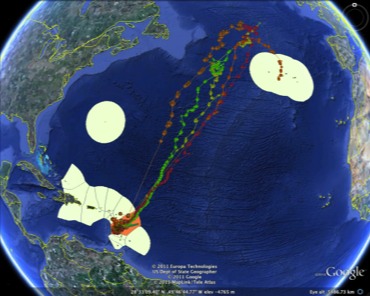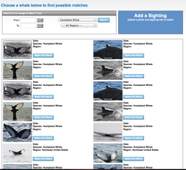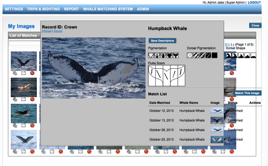Research Interests and Current Projects
Whether it be formal research, academic pursuits or my plain inquisitive nature, you can find a small slice of my research efforts here.
The ocean is largely unexplored and that means there are some pretty big questions out there. Questions that could lead to anything from the discovery of new medical treatments to species we never knew existed. That’s what I find so fascinating, whether scuba diving on a coral reef or fishing down the beach, you never know what you’ll find.
The ocean is largely unexplored and that means there are some pretty big questions out there. Questions that could lead to anything from the discovery of new medical treatments to species we never knew existed. That’s what I find so fascinating, whether scuba diving on a coral reef or fishing down the beach, you never know what you’ll find.
Meso-Scale Migrations:
Understanding migrations can help us uncover mysteries about the ocean out of reach of traditional research vessels. Why do animals that undertake long range migrations choose the routes they do? Are foraging grounds changing in a warming ocean? Are there bathymetric features like seamounts, deep canyons, or undersea plateaus where they spend time? Animals like the Leatherback sea turtle, for example, can be used as a sentinel species to identify areas on the high seas in need of protection. I’ve worked on tagging projects involving the two largest species of sharks (whale sharks and basking sharks) as well as various species of sea turtle. Animals like the Leatherback sea turtle, for example, can be used as a sentinel species to identify areas on the high seas in need of protection.

Reducing Collisions Between Ships and Whales
With partners from the Caribbean Association of Whale Watch Operators, we’re collecting sightings and vessel traffic information to investigate the risk of ship strikes to Sperm whales in the region. By conducting geospatial analysis to identify where whales and ships co-occur we can make recommendations on ship routing-reducing the risks of ship-whale collisions.

Smartphone Naturalist
It's amazing to see how the iPhone and other mobile devices are revolutionizing our lives. Suddenly we can book a plane ticket, find a taxi, read restaurant reviews and get directions on a map simply and easily. I feel this can have profound implications for science and have been working to leverage smartphones for conservation. I've just completed a cloud-based whale sighting database in the Caribbean and will soon have a mobile tablet app that greatly streamlines data-entry. I envision a world where anyone can help contribute to conservation and enabling this tool for citizen scientists is my next endeavor. Read more about my work with mobile apps for conservation.
